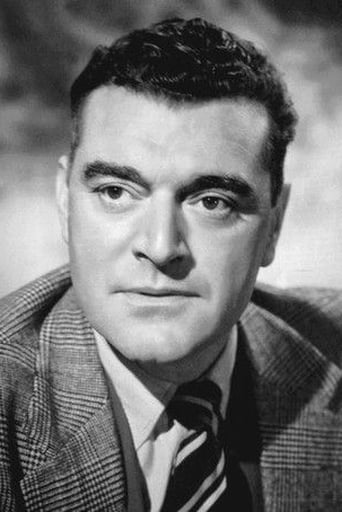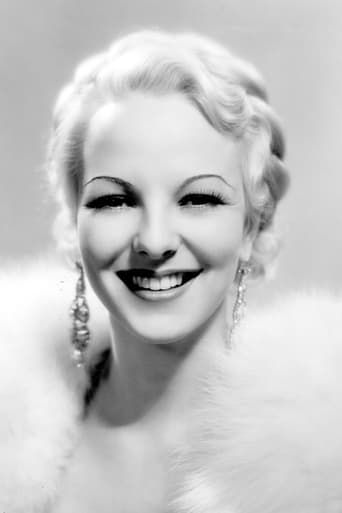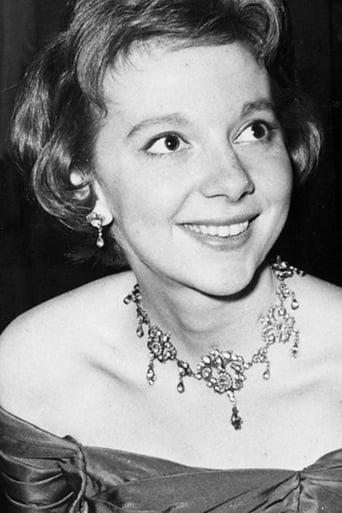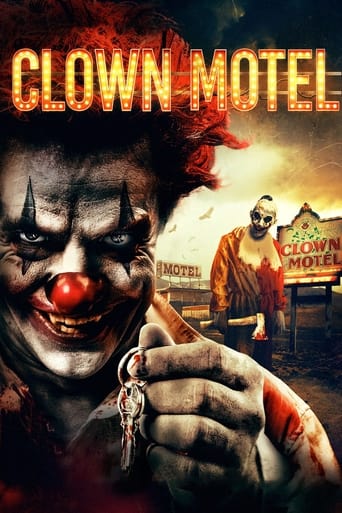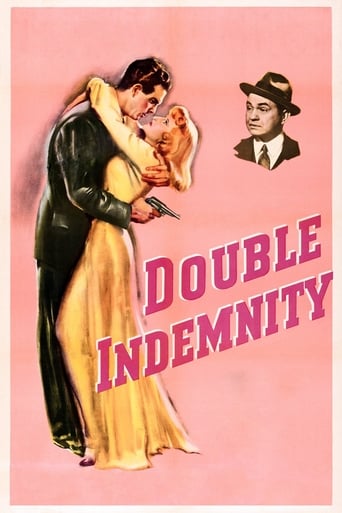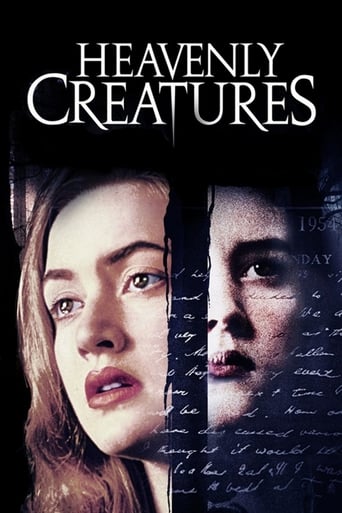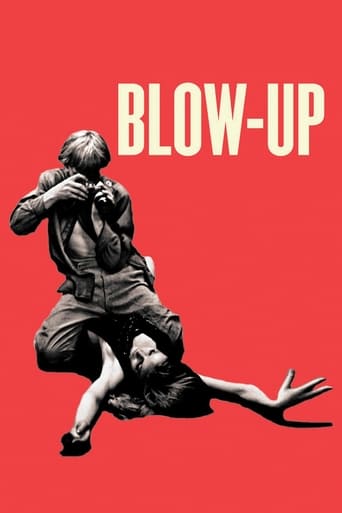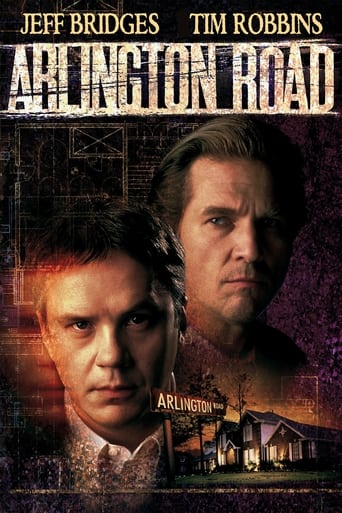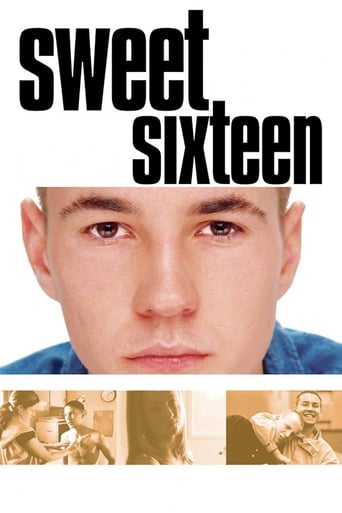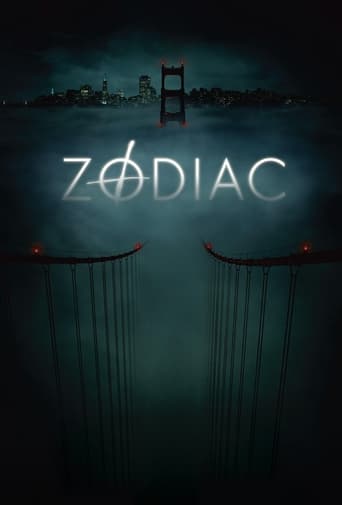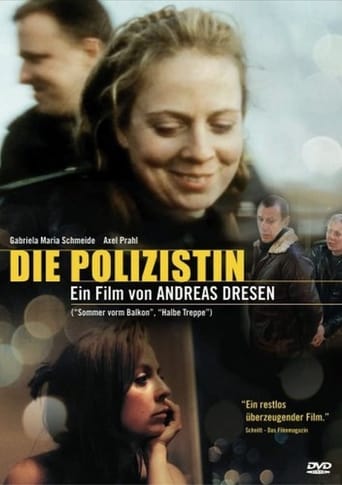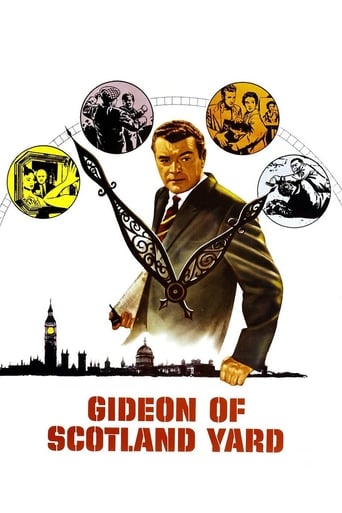
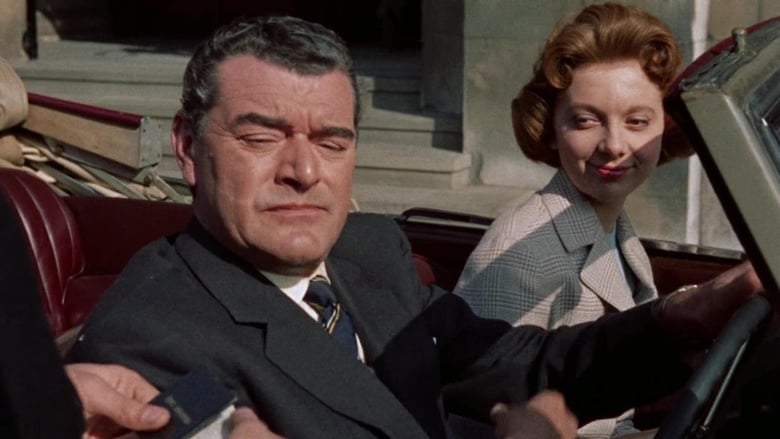
Gideon's Day (1958)
Scotland Yard Inspector George Gideon starts his day off on the wrong foot when he gets a traffic-violation ticket from a young police officer. From there, his 'typical day" consists in learning that one of his most-trusted detectives has accepted bribes; hunts an escaped maniac who has murdered a girl; tracks a young girl suspected of involvement in a payroll robbery and then helps break up a bank robbery.
Watch Trailer
Cast


Similar titles
Reviews
This early attempt to depict London as a swinging place is a far cry from what you may expect in a British crime film.Instead of fog and rain we have our hero driving around in the sunshine in an open convertible.The characters are all obvious stereotypes and dress the part. The Scotland Yard cops use terms like "beat it!" and "hoosegow" which I doubt were in the original book.The plot is a mishmash of seemingly unrelated, and quite uninteresting criminal activity, perpetrated by uninteresting one dimensional characters and one waits for the film to really get started.Our hero, Jack Hawkins is a fine actor, but is wasted in this piece of Anglo-American fluff.
British film-goers were by 1958 entirely used to police films set in London. They were part of a continuum year by year slowly ratcheting up realism and violence - and dropping the humour in the process. "The Blue Lamp" (1950) where a much liked elderly copper (the in-fact almost immortal actor Jack Warner who went on to reprise the role on TV for the following 30 years) is shot and killed by a downright bad 'un (the rather effete Dirk Bogarde), was apparently quite controversial in its day. The public's favoured cup of tea - or at least what was regularly served up to them in police films of the day was not too strong and not without trace of sugar. Bent cops didn't exist then, neither were detectives rough and insensitive with recently (ie 20 minutes earlier) bereaved widows. Rows and shouting were for the lower orders who were either quickly dispersed or shuffled off into separate cells. Jack Hawkins, iconic British actor of the time was heroism and gentlemanliness personified whether captaining a ship or being the sensitive father of a deaf and dumb daughter (the guaranteed weepy "Mandy").British film-goers knew the rules of what to expect of both story and cast when it came to police films and it was nothing like the gritty US productions of the day. With a comparatively very low murder rate and cops who didn't carry guns the real life conditions were very different between the two countries. A British policeman's lot could appear a rather whimsical one by comparison.Somehow John Ford, THE John Ford, comes to direct some of Britain's finest at a British studio in a production set in the streets of London based on a book by an English writer for an audience thoroughly used to a set of confined and unfamiliar conventions. Ford's favourite actor was John Wayne - the personification of plain talking, straight shooting and unrefined acting - rarely wasting a word when a punch will do. Here instead he has perhaps cinema's quintessential portrayer of sensitive masculinity being called on to steam-roller evidence from a widow, confront an underling with evidence confirming he's been on the take from "dope" dealers, solve a couple of slayings - and not forget the running bit of levity - bringing home the fresh salmon for dinner.The result although fast paced and not without its moments - Marjorie Rhodes as a bereaved mother is electrifying - is nevertheless a cultural car-crash. Two very different cinematic cop traditions from either side of the Atlantic - one whimsical, domestic and a little jokey, the other harsh and procedural, each proceeding at a reckless speed towards the other and meeting in the middle of the screen. The result is something which clearly contains a mixture of both but which thereafter proceeds irregularly and uncertainly in various directions like particle tracks in a bubble chamber following a near light speed atomic collision.
This has just aired at 1.20 p.m. on British television and all I can say is it would have been better to screen it at 4 a.m. or, better yet, turn it into banjo picks. I struggled to stay awake and had to force myself to keep watching. Seldom have I seen anything more dire. I've always found John Ford vastly overrated but he must have phoned this one in from Monument Valley. Even John Paddy Carstairs would be reluctant to take a credit for this inept, unexciting, indifferent blancmange. Virtually every second-rater in the British film industry at the time is wheeled out and given two minutes or so and the only reason to name them would be in order to spin this notice out into the required ten lines that IMDb insist upon but as I've achieved that I'll leave them unmolested though I can't say with any conviction unembarrassed. Run a mile from this garbage.
I knew I could come here and find someone proclaiming this as one of Ford's best 50s films, and I was right. Not only one of his best 50s films, but better than The Grapes of Wrath and How Green Was My Valley. Uh - no. Maybe Ford's worst, if not, right up there. The people praising the pace must have only seen the US black-and-white version, because the two-hour color version from the UK is excruciating. One uninteresting vignette after another. Yes, good actors, and an active score by Douglas Gamley, but it's just really, really bad.They insist I write more - why is that? I just said all I had to say, but they say it wasn't long enough, but this must be a new rule or something because in this very thread there is a "review" exactly two lines long. So, let me add one final thought - this film is not good.


